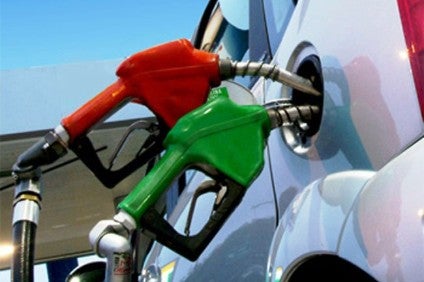
In March 2003 Brazil's auto industry began producing flexible-fuel cars powered by engines capable of running either on ethanol or petrol, or any blend of the two.
The first model was the Total Flex-badged version of the 1.6-litre Volkswagen Gol Power, developed in close collaboration with Tier 1 supplier Magneti Marelli.

Discover B2B Marketing That Performs
Combine business intelligence and editorial excellence to reach engaged professionals across 36 leading media platforms.
Ethanol fuel itself – produced in Brazil from sugar can rather than corn, as in the US, was not new. The first ethanol-only powered cars went onto Brazilian roads late in the 1970s. This was an important leap forward as it adopted a more sustainable energy source for light vehicles and was an alternative to the fossil fuels that had earlier caused a serious foreign currency crisis.
For a decade or so, ethanol engines powered up to 90% of new cars.
Following a period of fuel shortage, due to a dispute between the government and sugar cane producers, sales of biofuel powered new cars started to decline from 1990.
Consequently, five years later, ethanol-fueled models were all but off the market. Only VW kept producing them, and only to order.
Soon, though, the introduction of electronic fuel injection management software and the use of an oxygen sensor (lambda probe) in the exhaust system, for identifying the type of fuel in real time, made flexible-fuel engines viable. So, by 2004, all car manufacturers in Brazil were offering such models.
Increasing use of turbocharging gave another push to such engines. In 2013, a brand still to arrive in Brazil, BMW, introduced the 320i Active Flex, and rival models from Mercedes-Benz and Audi followed.
Amongst the well established local companies, VW in 2015 introduced a one-litre, three-cylinder TSI flexible engine in the Up and this motor went on to power a large proportion of new Polo models, the Virtus and the Golf Mark VII.
Since introduction, flexible-fuel engines have been fitted in over 30m locally-made or fully imported models. Almost 90% of cars and light commercials on the domestic market are so powered.
"Intensive use of ethanol in flex-fuel vehicles in the last 15 years avoided emissions of over 450m tonnes of carbon dioxide (CO2), the main contributor to global warming and climate change," said Alfred Szwarc, a Brazilian expert on sustainable transport.
"The avoided emissions were sufficient to offset the CO2 emissions from Argentina, Chile and Colombia combined," he claimed.
Local automaker CEOs have also highlighted, on several recent occasions, ethanol's crucial role in investments for research and development laid down in the Rota 2030 federal government plan for the auto industry expected to be announced this month.






